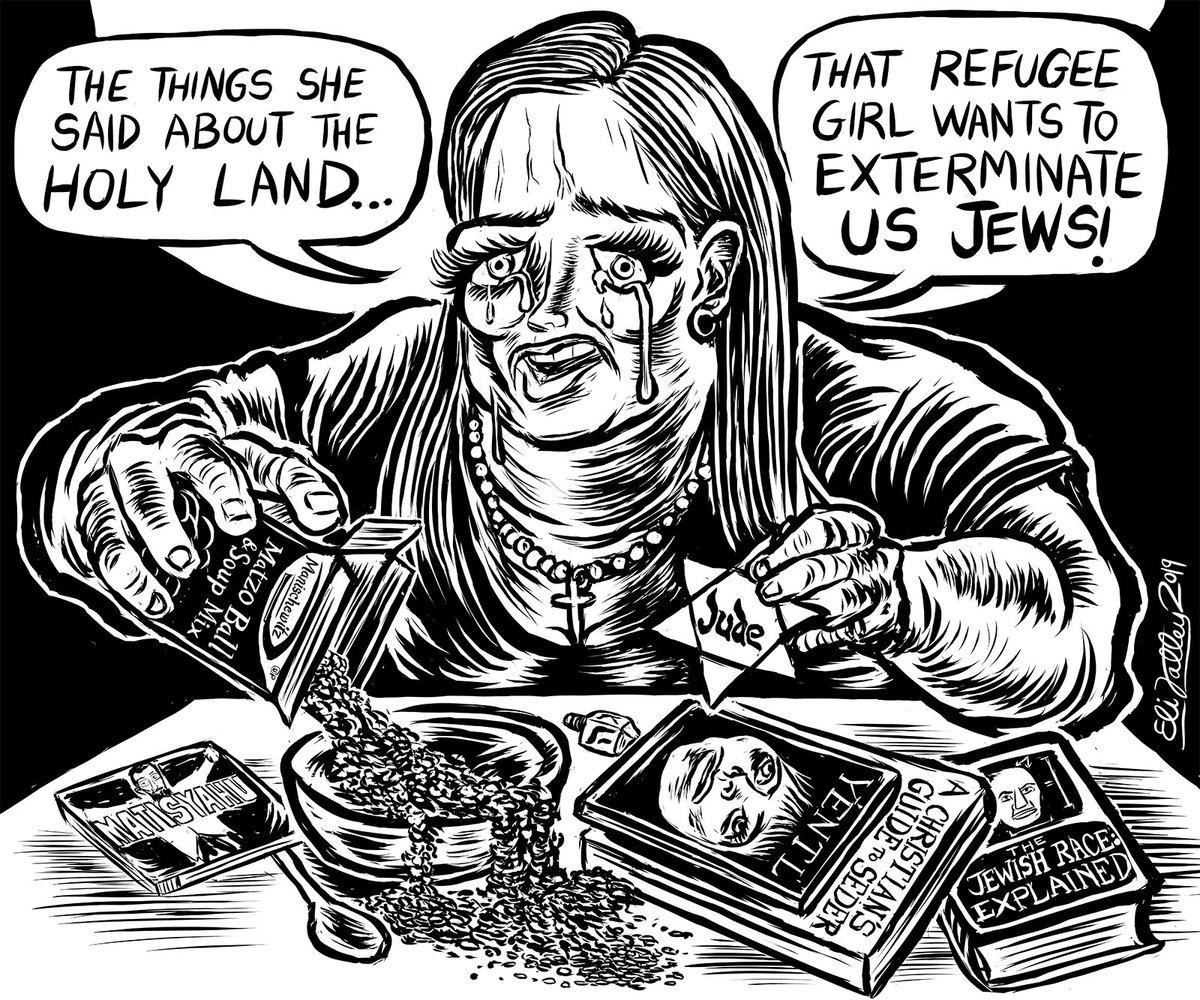Two days after Donald Trump refused to condemn white supremacists at the first US Presidential debate, I rang New York-based Jewish cartoonist Eli Valley. Joining the call in the midst of uploading his latest piece to Twitter, he apologised, though stressed the importance of a well-timed tweet given the frenetic political climate, noting it was likely he’d soon be compelled by new events to produce another cartoon. Of course, he was right. About five hours after our call ended, social media feeds and group chats erupted in schadenfreude-induced frenzy as news broke that the President had tested positive for coronavirus. Valley predictably picked up his pen once again.
Known for his distinct heavy black and white caricature style, acerbic wit and attracting the ire of the political, media and Jewish establishments alike, Valley has emerged as an iconic figure within the American left, with a particular following amongst a revived Jewish section.
Raised in upstate New York and New Jersey, Valley’s parents — a conservative rabbi and rebbetzin (rabbi’s wife) — divorced when he was six years old. In leaving her husband, his mother also left religious orthodoxy behind, shaping Valley’s adolescence as one marked by pronounced political differences. She became a social worker and dated an incarcerated African American man that she counseled, whilst his father delivered Shabbat services at synagogue, lecturing on the dangers of intermarriage. Moving between an “intense Jewish communal environment” and a “secular environment” “informed [his] approach both to Judaism and to wider politics” growing up.
He describes his upbringing as “Zionist in the formal and informal educational spheres. So pervasive, like the water that you drink and the air that you breathe. I must have been a Zionist myself without even realising or naming it as such.” His answer is strikingly familiar. Whilst growing up in a liberal, secular household myself made it easier to recognise and interrogate this atmosphere, I attended a modern orthodox Jewish school for three years where Zionism was ubiquitous. From Jewish Studies classes, singing Hatikvah (the Israeli national anthem) at school assemblies or the several kids who inevitably wore IDF shirts on mufti days. Why any twelve year old would choose to wear an ugly khaki shade over, I don’t know, JayJays or Supré, was beyond me!
Read the article by Lara Sonnenschein in Honi Soit.


